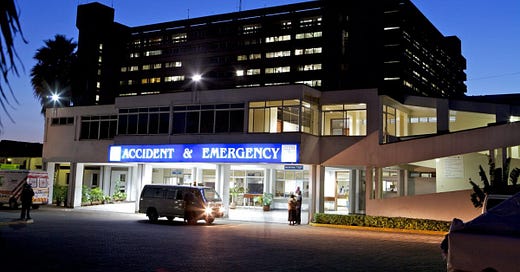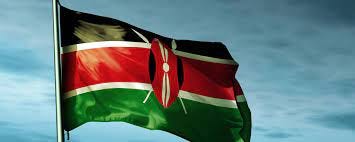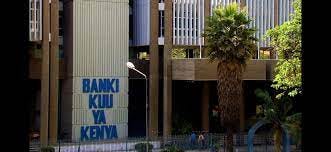Kenya Revenue Authority Pursues 1.79 Billion Tax Claim Against Naivas for 2020 Stake Sale
The Kenya Revenue Authority (KRA) has embarked on a legal pursuit to claim Sh1.79 billion in taxes from Naivas, a prominent supermarket chain in Kenya. The tax claim is linked to a reported 31.5 percent stake sale in the company in 2020. The KRA alleges that Naivas executed the deal through complex arrangements in Mauritius, effectively evading tax obligations in Kenya. This accusation has prompted the case to escalate to the tax tribunal, marking a significant clash between the retail giant and the country's tax authority.
The crux of the matter revolves around selling the shares held by the heirs of Naivas' late founder, Peter Mukuha Kago. These shares were sold to Amethis Retail, a consortium comprised of notable entities such as the International Finance Corporation, German fund DEG, and private equity firms Amethis and MCB Equity Fund. Through the investment vehicle Gakiwawa Family Investments, the Kago family is reported to have received Sh5.2 billion from the transaction. However, the KRA contends that the deal was structured in Mauritius as a deliberate maneuver to sidestep tax liabilities in Kenya.
The shift in ownership took place within Naivas International, which holds full ownership of the Kenya-based Naivas Limited – the core operational entity of the supermarket chain. As the KRA's pursuit of the substantial tax claim unfolds, it highlights the intricacies of international business transactions and underscores the growing focus on ensuring transparent and accountable taxation practices within the Kenyan business landscape. The case raises pertinent questions about the effectiveness of existing tax regulations and the extent to which companies may navigate cross-border deals to minimize their tax responsibilities.
HEALTH
Health Watchdog Shuts Down 60 Additional Hospitals in Nakuru County Amidst National Crackdown
In a decisive move aimed at upholding healthcare standards, the health watchdog has taken action to close down an additional 60 hospitals in Nakuru County, contributing to a nationwide crackdown that has seen a total of 260 facilities affected within a span of three weeks. The Kenya Medical Practitioners and Dentist Council (KMPDC) spearheaded this measure, permanently shutting down 44 hospitals due to their flagrant violation of established guidelines. These violations ranged from neglecting to renew licenses to failing to provide essential services. Additionally, 16 hospitals faced partial closures as a result of the crackdown.
This recent development follows closely on the heels of a similar incident in Mombasa County, where 46 health facilities were forced to cease operations due to their illegal practices. Across the past month, the government's efforts have been directed at evaluating healthcare facilities in Nairobi, Mombasa, Nakuru, Meru, and Embu. This comprehensive inspection encompassed a diverse array of establishments, including medical clinics, dispensaries, health centers, nursing homes, dental clinics, and faith-based hospital centers.
David Kariuki, Chief Executive of the Council, highlighted some of the key issues identified during these assessments. In addition to discovering expired samples and a lack of adherence to proper procedures for sample management, a significant concern emerged regarding non-compliance with infection prevention and control protocols. Specifically, Kariuki noted the absence of appropriate disposal bin separation. As the nation takes a resolute stance on raising healthcare standards, these closures serve as a powerful message that adherence to regulations is non-negotiable for the safety and well-being of patients.
BANKING
Banks Intensify Pursuit of High-Profile Clients Amid Surge in Corporate Defaults
In the wake of a mounting wave of corporate defaults leading to an escalation in bad loans, banks are launching aggressive efforts to target high-profile clients, including major corporations and influential billionaires. This financial trend comes as institutions grapple with the aftermath of a fresh surge in corporate defaults, leaving them burdened with a growing heap of non-performing loans. Joining the ranks of these determined lenders is Ecobank, which has enlisted the assistance of auctioneers to facilitate the sale of properties linked to Kenyan oil marketer Hashi Energy. The properties, spread across Nairobi, Nakuru, Kisumu, Eldoret, and Mombasa counties, are slated for sale as part of an endeavor to recoup a substantial debt totaling Sh5 billion.
Amidst this backdrop, various other prominent banks are resorting to legal recourse by seeking court orders to seize assets from defaulting clients. Notable players in this endeavor include KCB, Equity Group, and Absa Bank Kenya. This strategic move reflects the challenging business landscape characterized by sluggish economic activities. Among these banks, KCB Group, boasting the title of Kenya's largest bank in terms of asset size, has emerged as a particularly active participant in legal proceedings. This institution has taken legal actions to secure the seizure of diverse properties, a measure aimed at addressing the mounting unpaid loans reaching into the billions of shillings.
ECONOMY
Government Reduces Domestic Borrowing Target by Sh270 Billion to Alleviate Pressure on Interest Rates
In a strategic move aimed at mitigating mounting concerns over the government's impact on the private sector, the administration has decided to curtail its domestic borrowing target by a substantial Sh270 billion. By shifting a significant portion of budget deficit financing towards external markets, authorities are taking steps to alleviate the strain on domestic interest rates. The move is motivated by a growing perception that the State's extensive borrowing was beginning to crowd out private enterprise.
The recalibration of domestic borrowing is anticipated to yield multifaceted benefits for the country's economic landscape. The Treasury, bolstered by this decision, will inject fresh foreign exchange reserves into the market, a move poised to retire existing loans and provide stability to the national currency, the shilling. The Central Bank of Kenya (CBK) disclosed that the initial net domestic borrowing goal of Sh586.5 billion has been pruned down to Sh316 billion, with the remaining Sh270.5 billion being rerouted to the external market. Consequently, the external borrowing target has surged from Sh131.5 billion to Sh402 billion, reflecting a reimagined fiscal strategy.
Kenya's financial trajectory is being reshaped by these pivotal adjustments, as the nation grapples with a budget deficit projected at Sh718 billion for the ongoing fiscal year. This decision not only seeks to ameliorate interest rates but also strives to strike a balance between public and private sector interests, paving the way for a more harmonized economic progression. As the government embraces these fiscal modifications, experts are keeping a watchful eye on how this intricate maneuver will ultimately sculpt the country's financial landscape.
LAND
Land Rates in Major Kenyan Cities to Increase Following Treasury Approval for Review
In a significant move, land rates in several key Kenyan cities are poised to experience a notable hike, as the Treasury has given the green light to the Ministry of Lands' request for a comprehensive review. The initiative is geared towards generating an additional Sh8 billion in revenue for the nation. The Principal Secretary of Lands, Nixon Korir, recently addressed the Parliament, shedding light on the current state of affairs. It was disclosed that the government presently accumulates a mere Sh3 billion annually from land rates and rent, figures that have remained untouched for decades.
The prevailing regulations for property valuation and rating, established through the Valuation for Rating Act of 1956 and the Rating Act of 1963, have inadvertently resulted in substantial financial losses for counties. These outdated acts have not kept pace with the evolving property landscape, causing counties to miss out on significant revenue streams as property values skyrocket, particularly within urban centers. The surge in demand for land and housing has been met with stagnated rates, exacerbating the financial disparity between counties and central government coffers.
BANKING
Central Bank of Kenya Introduces New Interest Rate Corridor to Support Small Banks and Implement Inflation Targeting
The regulatory landscape of the banking sector in Kenya is undergoing a transformation as the Central Bank of Kenya (CBK) takes a proactive step to address liquidity challenges faced by smaller banks. In a strategic move to ease the burden on these financial institutions, the CBK has established a novel interest rate corridor. This corridor will serve a dual purpose, not only providing relief to smaller banks grappling with liquidity shortfalls but also marking the initiation of the inflation-targeting aspect of the monetary policy operations.
Under the freshly instituted interest rate corridor framework, interbank lending rates are now bound within a range that does not exceed 2.5 percent above the Central Bank Rate (CBR). By setting this limit, the CBK gains enhanced control over the interest rates levied by banks. This calculated maneuver not only ensures more reasonable interest rates for borrowers but also facilitates a smoother translation of decisions made by the Monetary Policy Committee into action.
CBK Governor Kamau Thugge articulated the significance of this transformation, stating, "We believe this framework will be more efficient and effective in implementing monetary policy decisions. For example, if we lower the CBR in the future, then everything else will move lower." This innovation aligns with the notion that interest rates will closely track the CBR, which is regarded as the economy's lowest cost of capital. As the new interest rate corridor takes hold, borrowers can anticipate a decline in interest rates, as the CBK's framework governs the cost of funding for banks.
WHAT YOU MUST HAVE MISSED
Access Bank (Kenya) Plc has received a capital injection of Sh1 billion ($7.5 million) from its parent firm Access Holdings Plc
The funding is expected to supplement the unit’s capital needs and improve the bank’s shareholder funds and capital ratios. The injection is further expected to strategically position the lender to meet its growth targets in the Kenyan market.“As a leading financial institution in the continent, we remain foresighted in our approach to our growth and capitalization needs,” noted Access Holdings Group CEO Herbert Wigwe.
Registrar declines release of IPPs data
The director general of Business Registration Service (BRS) has declined to divulge the personal information of owners of Independent Power Producers (IPPs) publicly citing a breach of the Data Protection Act.
Appearing before the National Assembly Committee of Energy probing the high cost of electricity, Kenneth Gathuma told the lawmakers he can only give the information to the committee for writing its final report but not for discussion in public.
Stanbic Bank Kenya sets 19 percent interest rate on riskiest borrowers
Stanbic Bank Kenya has set 19 percent as the highest interest rate for risky borrowers as the lender begins implementing risk-based pricing after receiving approval from the Central Bank of Kenya (CBK) last December. The bank says clients will be priced up to a premium of five percentage points on its internal benchmark lending rate currently set at 13.12 percent --a moving target based on the prevailing Central Bank Rate.








